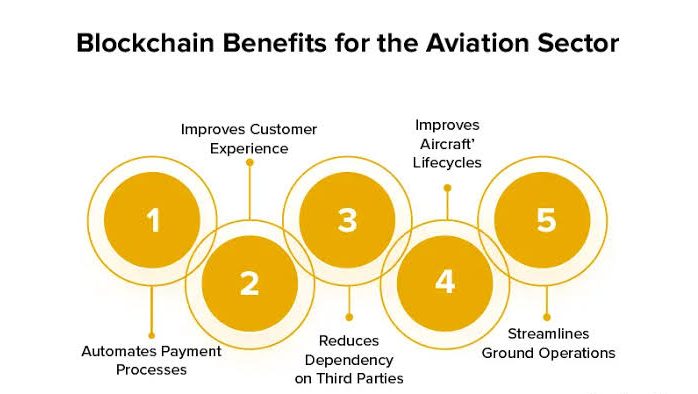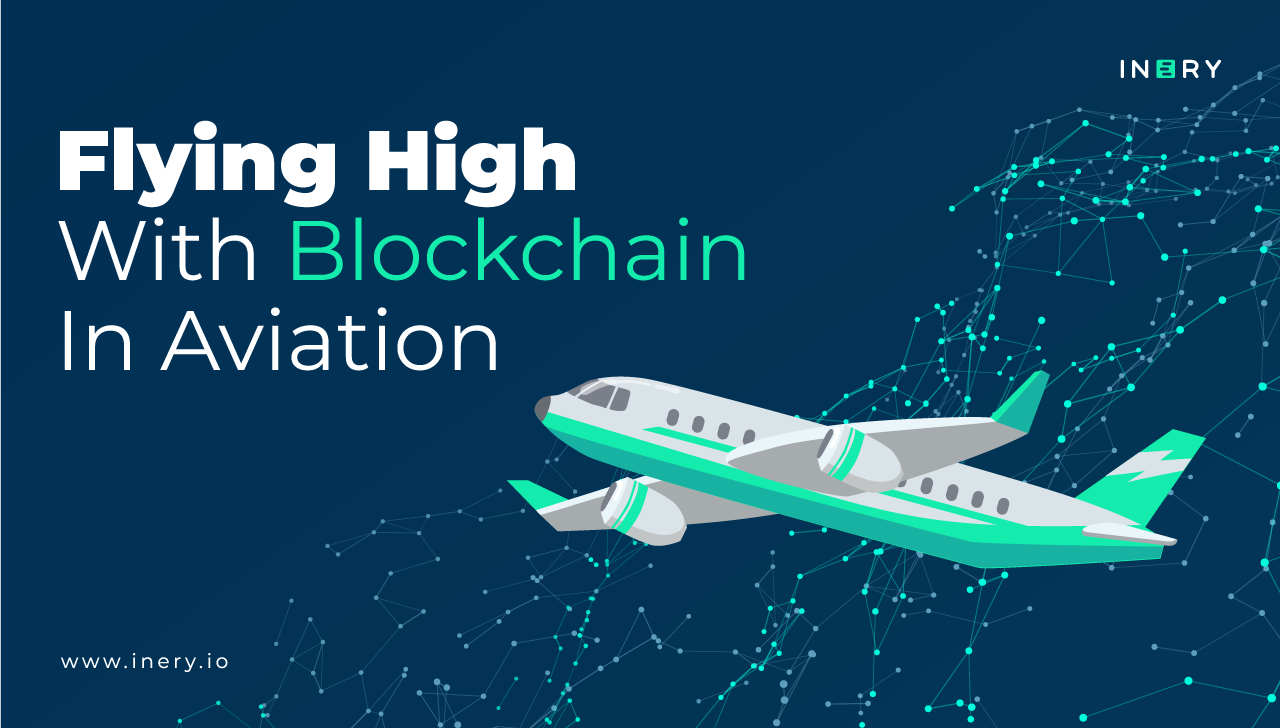The Impact of Blockchain Technology on Private Jet Bookings
Welcome to the brave new world of luxury air travel, where blockchain technology is revolutionizing private jet bookings. Dive into the seamless and secure world of private aviation enhanced by blockchain and discover a future of uncompromised security, streamlined booking processes, and unprecedented transparency. Blockchain, with its immutable record-keeping and smart contracts, presents a gateway to an optimized and smooth private jet experience. It simplifies the complex landscape of luxury air travel by optimizing transaction fees, personalizing the customer experience, and most importantly, ensuring regulatory compliance. However, like any emerging technology, blockchain faces its challenges too. Join us as we explore these aspects and the potential of blockchain in reshaping private jet bookings.
Introduction to Blockchain in Aviation
The advent of blockchain technology is changing a lot of things in our world today. It’s revolutionizing the way we store, process, and transact data. But what exactly is blockchain technology? Simply put, blockchain is a decentralized digital ledger that records transactions across multiple computers. Its decentralized nature ensures that no single entity can gain control or manipulate the data. It offers a more secured and transparent way of processing transactions and storing data, which reduces fraud and boosts efficiency.
One of the sectors now reaping the benefits of blockchain technology is aviation, particularly in private jet bookings. Private jets are known for their high standard of comfort and convenience, but there are still a few areas that need improvement like secure transactions, streamlined booking process, and improved transparency. With the blockchain technology, these deficiencies can now be addressed.
Current State of Private Jet Bookings
The current state of private jet bookings still largely operates on traditional booking systems which involve a lot of intermediaries, leading to increased cost, inefficiency, and a lack of transparency in pricing and availability. Private jet customers often need to rely on brokers and other third parties to process their bookings, which can be time-consuming and costly. Moreover, the prices of private jet flights can fluctuate significantly, and customers don’t always have full visibility of the pricing details, leading to lack of trust and confidence.
The industry also faces challenges when it comes to record-keeping and prevention of fraudulent transactions. For example, flight logs and maintenance records are typically stored and managed in different places, making it tough to consolidate and maintain.
The lack of transparency and seamless processes in the current private jet bookings are more than enough reasons for the industry to find better solutions. And thanks to blockchain technology, the much-needed change is now possible.
Enhancing Security in Private Jet Transactions
In the world of private jet transactions where high-value exchanges are the norm, security is paramount. The application of blockchain technology in this domain has given rise to safeguards that were previously unthinkable, ensuring that anyone involved in the process can operate in a trusted environment.
Immutable Record-Keeping
One of the foundational advantages of blockchain technology is the creation of immutable records. Instead of relying on paper contracts that can be misplaced, altered, or destroyed, transactions are recorded on a cryptographic ledger that maintains a detailed history of every interaction. This provides enhanced security in private jet transactions, where each payment, identity verification, and service exchange is permanently logged. The blockchain creates an unchangeable audit trail, where every transaction is traceable, transparent, and secure.
Fraud Prevention Measures
Blockchain technology also brings forth some innovative approaches to prevent fraudulent activities. The use of smart contracts brings an added layer of security in managing payment transactions. In short, smart contracts are programmable agreements that automatically execute when all preset conditions are fulfilled, thereby reducing the risk of fraud.
Furthermore, the use of a decentralized ledger ensures that no single party can orchestrate a fraudulent transaction. In an industry like private jet bookings, where transactions can run into millions, such enhanced security measures are a game-changer.
In summary, the application of blockchain technology in private jet transactions provides a framework that counteracts security threats like never before, offering significant opportunities for risk mitigation and fraud prevention.
Streamlining Booking Processes
The capabilities of blockchain technology can significantly streamline the booking process in private aviation. Considerably reducing wait times and manual workload, blockchain introduces upgraded systems, much to the customers’ advantage.
Smart Contracts for Automated Bookings
Blockchain’s smart contracts are self-executing contracts where the terms of the agreement are written into code. When it comes to private jet bookings, smart contracts permit an entirely automatic, decentralized method of making reservations. Performance data about flights and contractual obligations are stored securely on the blockchain. Once the defined conditions are met, like a customer making a payment, the smart contract automatically triggers the flight booking without needing any human intervention. Thus, blockchain technology eliminates the potential for human error and accelerates the overall booking process, creating a seamless experience for the client.
Reducing Intermediaries
A characteristic feature of blockchain technology is disintermediation – the reduction of intermediaries or middlemen. Traditional private jet booking procedures often involve numerous intermediaries such as brokers and third-party operators. These elements can slow down the procedure and may increase the likelihood of miscommunication or errors. By utilizing a decentralized system, blockchain technology facilitates direct transactions between parties. This simplification not only fast-tracks the overall booking process but also results in a more transparent and accountable system, potentially boosting customer confidence.
Improving Transparency in Private Aviation
Blockchain technology holds the transformative potential to increase transparency in the world of private aviation, particularly with regards to real-time availability and pricing, as well as traceable maintenance records.
Real-Time Availability and Pricing
With private jet bookings currently maintained across disparate systems and third-party agents, customers often have to endure long waiting times to ascertain pricing offers and check aircraft availability. This opaque process typically increases the chances for unnecessary markups and last-minute changes in cost.
However, with the introduction of blockchain technology, these bottlenecks can be efficiently eliminated. The distributed and decentralized nature of blockchain allows all the involved parties, including operators, brokers, and clients, to access unified and up-to-date information about flight availability, pricing, and aircraft specs in real time. From the customer’s perspective, the real-time availability and pricing offered by blockchain guarantees an enhanced booking experience devoid of hidden charges and neurological pricing, reflecting the true luxury essence of private air travel.
Traceable Maintenance Records
One significant advantage of blockchain in enhancing transparency in private aviation lies in the accessibility of aircraft traceable maintenance records. Current practices in the aviation industry involve the use of hefty paper logs for recording maintenance activities, which can pose challenges in tracking an aircraft’s maintenance history accurately and efficiently.
Blockchain technology, with its digital divide, permits the recording of every minor and major aircraft maintenance onto a secure, immutable ledger, accessible to all relevant stakeholders. This digital trail of traceable maintenance records provides undeniable proof of an aircraft’s health, boosting customer confidence and satisfaction.
In conclusion, blockchain’s potential to enhance transparency in private aviation is extensive; its execution promises to ensure real-time availability of information, clear pricing mechanisms, and effective tracking of maintenance history. Its full implementation may very well redefine transparency standards in private aviation, elevating the user experience to uncharted levels.
Cost Reduction Through Blockchain
The advent of blockchain technology marks a significant milestone in the quest for cost optimization in private jet bookings. With blockchain, private jet travelers and service providers alike can benefit from the potential for markedly reduced costs.
Lowering Transaction Fees
Blockchain technology has the potential to revolutionize private jet bookings by significantly lowering transaction fees. Currently, transactions involved in booking private jets may pass through several intermediaries, including booking agents, bank institutions, and payment processing companies, each charging their own fees. Blockchain, with its decentralized nature, eliminates the need for these intermediaries by allowing for direct peer-to-peer transactions. The utilization of cryptocurrencies, like Bitcoin or Ethereum, further reduces fees associated with foreign exchange during international bookings. Herein lies the key: Blockchain cuts down on the multiple layers of transaction costs, making private jet travel more affordable and accessible.
Optimizing Operational Costs
Beyond transaction fees, blockchain also plays a crucial role in streamlining operations and reducing costs in other areas. One such area is maintenance record-keeping. Traditional paper-based systems for tracking aircraft maintenance and repair histories can be cumbersome, slow, and prone to errors. In contrast, a blockchain-based system offers an immutable digital ledger, recording every maintenance task performed on an aircraft in real-time. This ensures accountability, reduces time spent on verification processes, and can lead to lower insurance premiums due to increased transparency.
Additionally, blockchain technology allows for smart contracts, enabling automated payment processes. This mitigates against late or defaulted payments and cuts administrative costs associated with contract enforcement and debt collection.
Through the lens of reducing transaction fees and optimizing operational costs, blockchain technology is undoubtedly a game-changer that offers a promising avenue for cost reduction in private jet bookings.
Personalization and Customer Experience
In the high-end travel sector such as private aviation, personalization is of utmost importance. The implementation of blockchain technology brings about a whole new level of personalization and customer experience.
Secure Storage of Passenger Preferences
One of the key advantages blockchain technology offers is the secure storage of data, in this case, passenger preferences. This implies that passenger’s preferences such as preferred seating, food choices, preferred flight paths, preferred in-flight amenities, and the likes are securely stored on the blockchain.
Once a passenger engages the services of a private jet company, his/her preferences are stored, with subsequent bookings automatically referencing these preferences from the database to ensure the passenger’s needs are catered to. This eliminates the need for repeating or verifying passenger preferences each time a booking is made.
Moreover, the immutable nature of blockchain technology ensures that these preferences are tamper-proof, thereby maintaining the integrity and confidentiality of data.
Loyalty Programs on the Blockchain
Blockchain technology is gradually transforming how loyalty programs are being managed. Running a loyalty program on blockchain technology provides a transparent, easy-to-use, and secure ecosystem for managing rewards.
For instance, in the private jet bookings sector, loyalty points could be tokenized on the blockchain, such that passengers earn tokens for each booking made, which can be redeemed for future travel or other premium services.
The benefits of employing blockchain technology in managing loyalty programs include real-time updates, fraud reduction, and the elimination of intermediaries involved in the redemption process. Notably, loyalty rewards could become more appealing to the customers knowing that they are secure and can be redeemed without undue delays or hassles.
Conclusively, blockchain technology paves the way for a much-enhanced personalization experience in private jet bookings, ensuring that passengers enjoy secure, seamless, and rewarding travel experiences.
Regulatory Compliance and Blockchain
The Blockchain technology has a profound impact on meeting regulatory standards in the realm of private jet booking. As aviation services get complex, the role of regulatory compliance gets even more critical to maintain aviation safety, effectiveness, and to ensure a smoother passenger experience.
Meeting Aviation Authority Requirements
Every aviation authority worldwide works on a stringent set of rules and regulations. For instance, elements like aircraft maintenance records, crew logs, flight incident data, and many more need to be quickly accessible and auditable. Here, the blockchain technology comes in play.
With the decentralized and permanent nature of blockchain, compliance with these myriad requirements has become less cumbersome. The blockchain provides an immutable log of all the necessary information which could be easily accessed without any alteration worries. This process ensures transparency and buoyancy in the aviation industry, making it simpler for the authorities to keep track of the necessary data.
Furthermore, utilizing blockchain, there could be a decentralized database where every bit of relevant information can be stored. It would include details like pilot experience, licenses, aircraft engine status, and more. This decentralized database would make it significantly easier to comply with aviation authority requirements around the world.
Simplifying Audits and Reporting
Auditing and reporting are important processes in aviation that ensures adherence to set regulations and safety measures. Traditional ways of auditing and reporting involve the risk of human error and are a tedious process, often leading to inefficient time consumption.
However, the advent of blockchain technology has simplified the audit and reporting process significantly. Flight logs, pilot hours, maintenance records, and even the smallest minutiae about an aircraft can be stored onto the blockchain. The resultant ‘digital twin’ of the aircraft allows auditors to explore the entire life history of the aircraft, with the assurance that none of the records have been tampered with.
The use of blockchain in audits helps to further improve the accuracy, speed, and integrity of audit reports, making regulatory reporting faster and less complicated. In essence, the integration of blockchain technology leads to easy and ensured regulatory compliance, redefining the processes in private jet bookings.
One thing is sure, the revolutionary technology of blockchain promotes improved transparency, safety, and efficiency within the industry. Despite posing some challenges initially, the long-term benevolence of blockchain in private jet bookings is indisputable.
Challenges in Implementing Blockchain
While blockchain technology holds immense potential for revolutionizing private jet bookings, its implementation is not without challenges. The two key obstacles facing the adoption of this technology in the private aviation sector are industry adoption hurdles and the need for robust technical infrastructure.
Industry Adoption Hurdles
One of the primary hindrances to the widespread adoption of blockchain technology in the private jet industry is the lack of sufficient understanding and awareness of the technology itself. Many in the industry are hesitant to move away from traditional systems due to the perceived complexity and unfamiliarity with blockchain systems.
Another significant obstacle is the issue of standardization. Because blockchain technology is still relatively new, there are no industry-wide guidelines or regulations outlining its use. This lack of standardization can lead to inconsistencies in the way different organizations implement and use blockchain technology, potentially reducing its effectiveness.
Finally, trust is a major concern in the adoption of blockchain technology. Despite the technology’s inherent security features, it can be difficult for individuals and organizations to place trust in a system that is so fundamentally different from traditional processes.
Technical Infrastructure Needs
Implementing blockchain technology requires a significant overhaul of the existing technical infrastructure. Often, existing systems are not equipped to handle the computational requirements of blockchain technology, necessitating substantial upgrades or even entire system overhauls.
Securing blockchain transactions is another technical challenge. While blockchain is inherently secure, it introduces new attack vectors. Therefore, protocols need to be implemented that both safeguard the confidentiality and integrity of data, and secure the infrastructure from cyber threats.
Lastly, scalability is a common issue. As more transactions occur, the size of the blockchain grows, and every participating node must maintain a copy of the complete blockchain. This can quickly become unmanageable, requiring additional storage and computational resources.
Adopting blockchain technology in the private jet booking industry, despite its potential benefits, is a complex task that requires overcoming several significant challenges. However, with continued advancements and broader acceptance, blockchain has the potential to redefine the face of luxury air travel.
Future Prospects of Blockchain in Private Jet Bookings
The application of blockchain technology within the realm of private aviation, particularly in jet bookings, could potentially redefine industry standards and processes while simultaneously paving the way for integration with other emerging technologies.
Potential for Industry-Wide Standards
The transparency and security afforded by blockchain could very well set a new benchmark for private jet bookings. By offering immutable record-keeping and the eradication of intermediaries, blockchain ushers in a new era of trust and efficiency. The industry could see standards revolving around the use of smart contracts becoming commonplace, streamlining the booking process while also significantly lowering the risk of error or fraud.
Not only that, blockchain’s potential extends to the realm of giving customers a more personalized and enriched experience. Secure storage of passenger preferences and blockchain-based loyalty programs can revolutionize the way current customer reward programs function.
Integration with Other Emerging Technologies
Blockchain technology doesn’t exist in isolation. It can be easily integrated with other cutting-edge technologies such as artificial intelligence (AI) and Internet of Things (IoT) to further enhance the efficiency and security of private jet bookings.
AI, for instance, can be used in tandem with blockchain to automate numerous processes such as flight availability checking, pricing, and customer communication, while IoT can provide real-time monitoring of different aspects of the aircraft’s condition and performance. By amalgamating blockchain with these technologies, private jet companies can usher in a new era of seamless, secure, and highly efficient service delivery.
In conclusion, the prospects of blockchain technology in the sphere of private jet bookings are exciting and full of potential. From establishing industry-wide standards to fostering the integration of other emerging technologies, blockchain may just be the digital revolution that the private jet industry needs. This not only works to enhance the passenger experience but also continues to maintain the standards of luxury that are synonymous with private air travel. The future undeniably looks bright as the lines between technology and luxury air travel increasingly blur.













